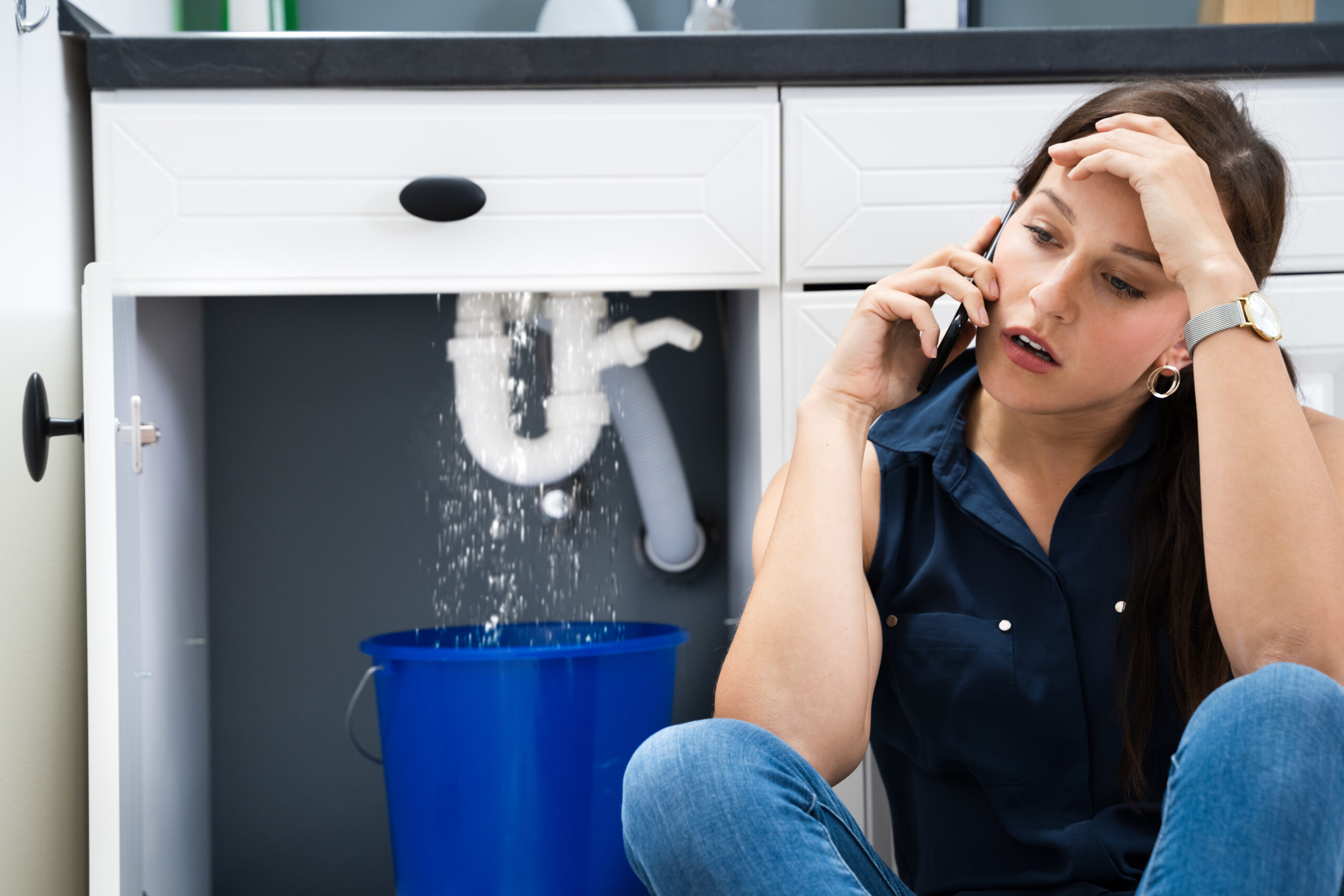Frequently Asked Questions
Emergency Call - 24/7
- +1 808-478-8069
FAQ
General Plumbing Questions
Tree root invasion is one of the most common and persistent reasons for plumbing clogs. If you have several large, mature trees on your property, you should be mindful of the potential for this problem. The Plumbing Contractor can help get rid of tree root intrusion with our minimally invasive hydro-jetting process, which sends a strong stream of pressurized water through the pipes to break up debris.
If you have an older home, your plumbing pipes may be susceptible to collapse, or weakened from many years of corrosion. Your pipes could even have lead in them, which exposes you and your family to potential health problems. To discern what your pipes are made of, as well as what shape they’re in, call The Plumbing Contractor for a minimally invasive sewer video camera inspection. We can detect any potential signs that your pipes are in a fragile condition and give you an estimate on how long you can expect them to last before you will need to get them replaced.
Normally, your plumbing system does its work quietly, which is why unexpected plumbing noises can be so alarming. In some cases, these odd sounds indicate severe plumbing issues. Here are some of the most common noises your pipes can make, and what they might be trying to tell you.
Banging: Normally, knocking or banging noises in the pipes result from a problem with water pressure or water flow. However, these issues could occur for a variety of reasons, so it’s best to have a trained plumber evaluate your situation.
Gurgling: If your pipes are having trouble draining, you may begin to hear them make gurgling noises. These usually result from the water trying to move past a clog or other obstruction. If you are hearing this noise, call the The Plumbing Contractor for a professional drain cleaning.
Rattling: Your pipes travel mostly behind walls, ceilings and floors. Pipes that hang suspended must be securely fastened. If a fastener becomes loose or falls away, you may notice a rattling noise when water moves through that section of pipe. Because the pipe is most likely hidden, you will need to call a professional to find and secure the pipe and eliminate the annoying noises.
Some easy ways to save money on your monthly water bills are:
- Take shorter showers.
- Only run the dishwasher or washing machine if you have a full load.
- Don’t leave the water running while you brush your teeth.
- Install low-flow toilets and shower heads.
If you have taken most of these money-saving measures and still have higher-than-average water bills, despite your monthly water usage remaining consistent, a plumbing leak is a likely culprit. You should call The Plumbing Contractor to conduct a thorough inspection and evaluation of your pipes.
Many plumbing problems are easy to spot, but because leaks often start off small, they can sometimes sneak by undetected for years. Leaks can also hide behind walls, under floors and even in your ceiling, making them even more challenging to find and resolve. Here are some ways to tell if you have a leak.
- Your water bill has abruptly skyrocketed.
- Your water meter continues to tick, even when you are not using any of the plumbing fixtures in your home.
- You spot signs of mold and mildew proliferation, or catch a whiff of a musty smell.
- Foundation cracks have appeared in your home seemingly overnight.
- You have damp spots or discoloration around tubs, toilets or sinks.
If you notice any of these issues occurring, give the experienced team at The Plumbing Contractor a call to get a handle on it for you. Leaks don’t solve themselves, and the longer you delay in getting them fixed, the more drastic the problem will become, eventually causing more damage that will correspondingly cost you more money to address.
A sewer camera inspection is the most technologically advanced way to discover any problems hidden within your pipes. It is also an excellent way to detect any minor issues that may become more severe in the future, such as a small accumulation on the walls of your pipes that is just beginning to form the basis of a clog. Here are some examples of circumstances in which a sewer camera inspection will be beneficial.
- You have a full or partial drain backup and want to determine the cause.
- You are being proactive about keeping your plumbing in peak condition, and wish to prevent any problems before they get out of hand.
- You are considering buying a property and want a full picture of the health of the plumbing system before completing the transaction.
- You want to know the age of your pipes and what material they are made from.
At The Plumbing Contractor, we recommend drain cleaning as a preventive measure to keep your home sanitary and your water flow at full function. Periodic drain cleaning helps keep costly issues like unexpected clogs from becoming a large-scale problem. It also gives you greater peace of mind that a sewer emergency won’t disrupt your life.
When your home’s drainage and venting system is working properly, you should not notice any bad smells from sewer gas. However, if you can smell that telltale unpleasant odor, it is a sure sign you have a problem somewhere in your pipes, and you need to call for repairs as soon as possible. Exposure to these sewer odors, even in small amounts, can be extremely hazardous to you and your family, including pets. The clog, crack or corrosion that is causing the noxious smells to plague your property won’t go away without professional plumbing repairs.
Usually, a drop in water pressure is a sign of a problem somewhere within your plumbing system. This change often happens over time. If only one plumbing fixture has low water pressure, it’s likely you can fix the problem by replacing that fixture or repairing the pipes that run to it. However, if you have been experiencing low water pressure throughout your entire home, that indicates a systemic issue. The most severe and potentially costly reason for low water pressure occurs when old galvanized steel water pipes have become corroded to the point that they are dramatically reducing the amount of water that can flow to and from your home. As these pipes age, the buildup of corrosion and scale gradually restricts the diameter of the pipe, and you will need to call a trained team to repair and rehabilitate the damage.
At The Plumbing Contractor, we advise against do-it-yourself toilet clog repairs such as plunging. Plunging a clogged toilet can break the seal, causing leaks and further damage. The best course of action is to call us to dispatch a trained technician to your property to prevent a toilet backup that could jeopardize your health. Without the experience and knowledge to clear the clog effectively, you could end up costing yourself more money than if you had made the right call and hired a professional to begin with.
To ensure you are getting the most for your money and repairs that get done right the first time, you should make sure the company you are working with is reputable and able to provide the services you need. It’s worth your time to do your homework. Here are some things to check for.
- Customer reviews: What have other people said about their experience? If they were happy enough to leave glowing reviews, that says a lot.
- Licensed and insured: Attaining state licensure for plumbing repairs requires specific training and knowledge of all local codes, while insurance protects you against unexpected damage.
- Friendly, yet professional, attitude: Do the plumbing technicians take the time to explain the problem and procedures to you in terms you can easily understand? Will they be respectful toward you and your property? Are they honest and trustworthy?
- Equipment and tools: Look for a plumber that has invested in the most modern supplies to complete their work as effectively as possible.
- Availability: Some plumbing repairs pop up when you least expect them. In the most extreme circumstances, you need a dedicated team you can count on 24/7, so if your toilet overflows at 3 a.m. on a Saturday, you know there’s only one call you need to make.

